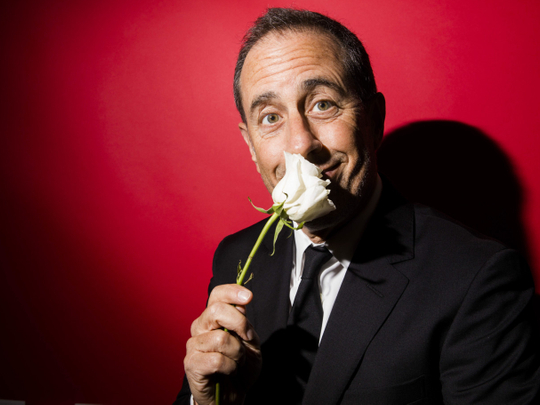
Many of us have been wondering lately what Jerry Seinfeld, the sitcom character, would be doing in this current era of home quarantines and social distancing: how his extreme fastidiousness, self-centeredness and constant scrutiny of quotidian details (not to mention the hyperbolic traits of his fictional friends and neighbours) would be stretched to hilarious extremes in an environment of isolation and anxiety.
However, the real Jerry Seinfeld — the one who gave up the sitcom long ago to focus on an occasional talk show and a peerless stand-up career — is not the same guy. While he has been sheltering in place with his wife, Jessica, and their three children, he is as devoted as ever to his daily rituals and habits, and still inescapably prone to atomic-level observations of human behaviour. But he is also self-conscious in a way that you never see in his act: He cracks jokes and then wonders whether it’s appropriate to do so or if people even want to laugh right now. These are difficult questions to wrestle with when you’re a comedian, and like everyone else, Seinfeld is trying to figure out who he is and what he should do now.
Though he prefers to present himself publicly in the classic stand-up’s attire of a suit and tie, Seinfeld appeared last Wednesday wearing a simple sweatshirt that read ‘GARAGE’, in a Zoom session from his house in the Hamptons. It was Seinfeld’s 66th birthday, and the video call took a few minutes to activate, requiring an intervention from the comedian’s more tech-savvy daughter, Sascha, who is 19. (“The youth of America,” he said, beaming with fatherly pride.)
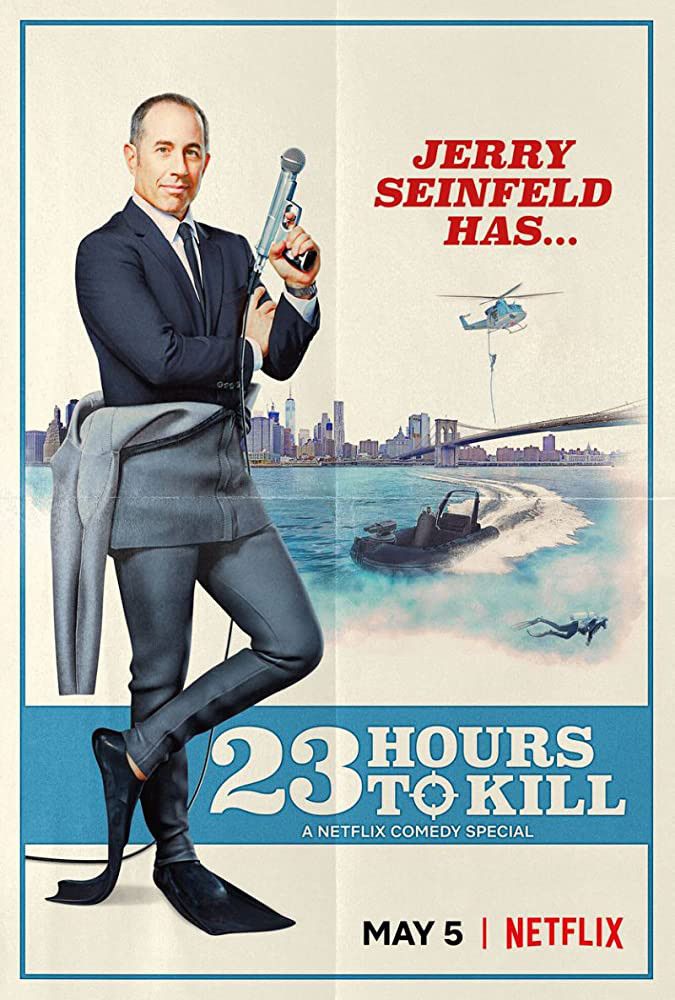
Sitting in a room decorated with family photos, books, model cars and a copy of the Allan Sherman comedy album ‘My Son, the Nut’, Seinfeld talked about his evolving feelings on comedy, its power and its deficiencies during this time. From that perspective, he also contemplated his new stand-up special, ‘23 Hours to Kill’, which Netflix will release Tuesday; Seinfeld is aware that its jokes about the minor indignities of public gatherings, internet communication and the Postal Service may now play very differently than when the set was recorded in October at the Beacon Theater in Manhattan.
Seinfeld said he wasn’t sure whether the special would be his farewell to filmed comedy, but he described his overall professional outlook as “post-show business”: “I’m really just into the pure art of it now,” he explained. “Just the bit, the audience and the moment. I’m more interested in that than ever, and I’m less interested in everything else.”
Seinfeld spoke further about his reflections in quarantine, his need for routine and what he hopes comedy and New York will look like when this all ends. These are edited excerpts from that conversation.
When did the pandemic start feeling serious to you?
I knew instantly. I called my tour producer and said, “Get ready to start cancelling dates.” It was like running in front of a tsunami. Let’s head for the hills. But part of your make-up in this profession is adaptation. You just become highly adaptable to everything. So this is just another thing to adapt to.
Is it harder, though, when we don’t know when this is going to end?
Yeah we do. Sure we do.
When?
Well, I’ll take the over. (Laughs) I would bet on this virus. Can you imagine how jealous the other diseases must be of this idea of no symptoms for two weeks? Like, polio: “Just think of what I could have been if I thought of that.” Smallpox: “This could have been so much bigger.”
So you’re finding you can still make jokes right now?
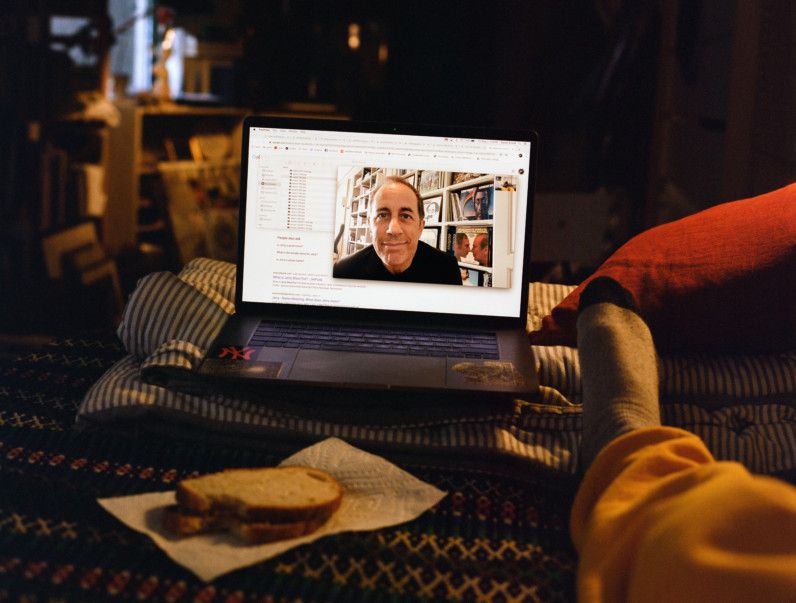
Not really, to tell you the truth. I don’t really feel that funny. It’s hurting so many people, so brutally. I’m not in the mood to be funny. It’s like you’re a bird and then suddenly they change your cage. You’re just not sure who you are now.
You have a reputation as a neat freak. Do you feel that’s been validated now?
I’m not a germophobe. I’m more about organised behaviour routines. Yes, I do put my toothpaste on the same spot all the time. I’m not OCD, but I love routine. I get less depressed with routine. You’re just a trained animal in a circus. I like that feeling: Now we’re going to do this trick, now we’re going to do that trick. That makes me feel better. I don’t want too much mental freedom. I have too much of that anyway.
Do you find yourself yearning to get back onstage when you haven’t been able to do it for several weeks?
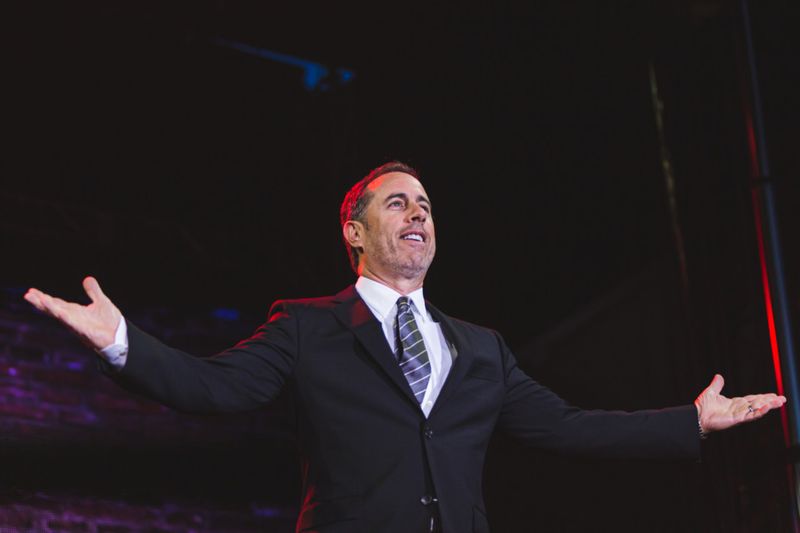
It’s kind of like missing your friends. I would love to hang out with them, but I can’t. You just accept it. I still have a writing session every day. It’s another thing that organises your mind. The coffee goes here. The pad goes here. The notes go here. My writing technique is just: You can’t do anything else. You don’t have to write, but you can’t do anything else. The writing is such an ordeal. That sustains me.
Do you worry that stand-up comedy won’t ever be what it was before and the audiences just won’t come back like they once did?
No chance of that. People are going to go back, first of all, because laughter is the greatest feeling of release that there is. And No. 2, the comedians are going to adapt so much quicker than everyone else. The TV shows won’t quite know what to make. The movie people might not know what to make. The comedians, within three nights, will know what to be doing. Because you’ll get that feedback instantly of what works and what doesn’t.
You have a routine in the special about people loving New York specifically because it is crowded and uncomfortable. Does that feel unexpectedly poignant now?
No, if you love the city, you still love it. I was talking to somebody yesterday, and they just said the word “Williamsburg,” and I got such a pang of longing to be in Williamsburg. I miss the city a lot. The vibe of it — it’s postponed, let’s say.
Do you regret how much time you spent in the special making fun of the Postal Service?
Oh, yes, I do a little bit. But it is funny. Its whole concept is based around walking and licking and strange numbers of pennies. That’s still funny.
So much of your comedy is built around close observations of the ways people interact with each other. Is all of that out the window if our ways of interacting change dramatically? Do you have like 15 minutes of material on handshaking that you can never use again?
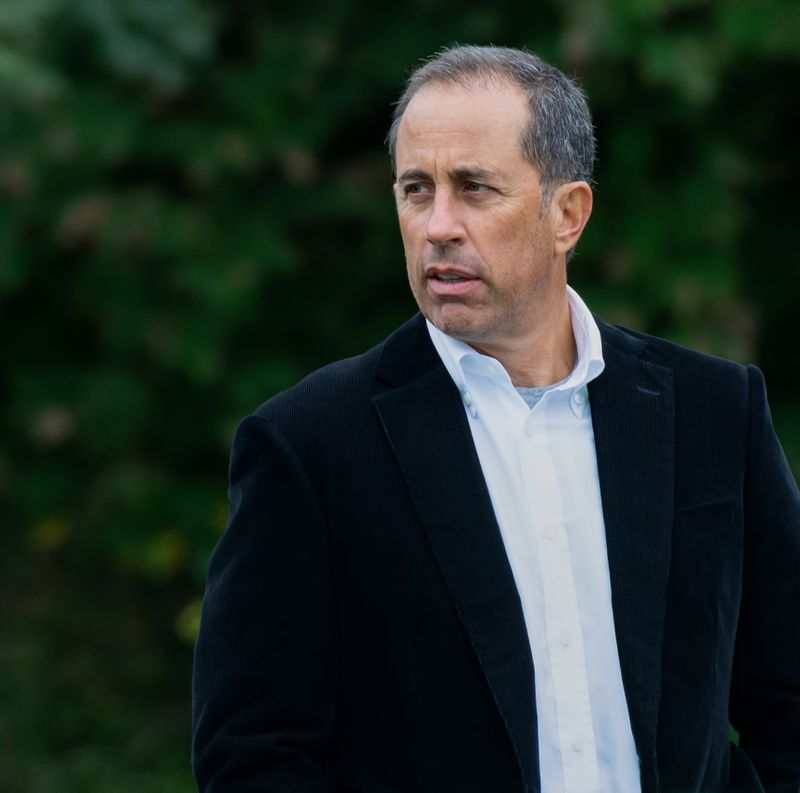
I don’t, but if I did I’d be upset about it. I shot the trailer for the special in the first week of March. We weren’t doing 6 feet yet, but that was the first time I was in a large group of people and nobody shook hands. Nobody touched anybody and at the end of that day, it felt a little cold. And I don’t like shaking hands. But having spent a whole day working together with a big group of people, when I walked out, I definitely felt something missing.
What inspired you to begin the special with a stunt sequence in which you jump out of a helicopter into the Hudson River?
Sixty-five years old! Who does that at 65 years old? If there was a piling right where I landed, that would have been a mess. It was cool. It was scary. And it is impressive. (Laughs) The helicopter joke came from the title. Once I came up with “23 Hours to Kill,” that sounded like a Bond movie, so let’s do a Bond movie opening.
We did it in late August, when the water would be warm. I’m in the chopper with the stunt coordinator. We’re about four stories off the Hudson River. I’m sitting in the door, getting ready to jump, and I say to the guy, “Have you ever had another actor do something like this?” He says, “I’ve been in this business 30 years, I’ve never had a stuntman do anything like this.” But there was a stunt guy that did do it before me. I stupidly thought it would be easy. I don’t know why I thought that. It’s not easy.
Why was it important to you to do that?
The special was a very personal thing to me — a document of who I was and what I did in my life. That’s what I wanted this thing to be. I’m not a big fan of really old people going on TV. I don’t really want to be one of them. I want to put everything I have into this. I also thought my age was a very funny aspect of it. To be 65 and still doing something this absurd — that’s part of what I wanted my signature to be. That I kept trying to do silly things, right to the end.
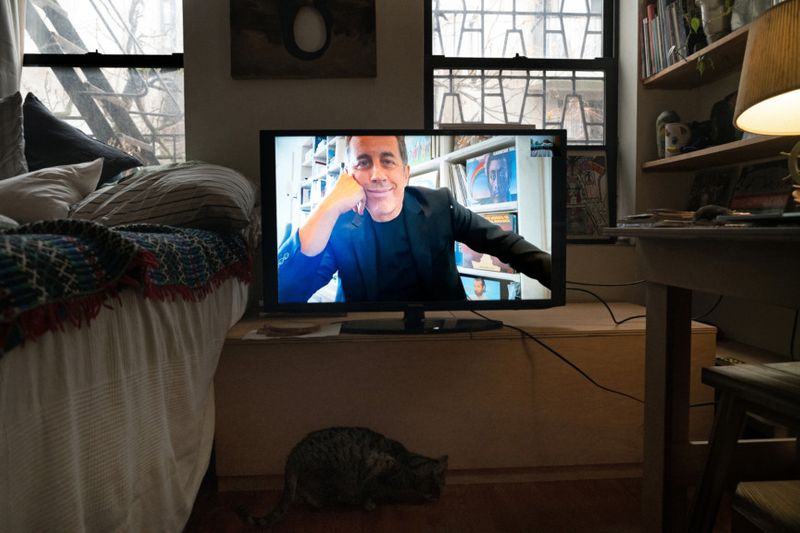
Do you feel like you’re coming to the end of something, professionally?
A little bit. I’m kind of — what’s the word? — post-show business now. I did show business. And I love show business, but I’m past that. Past trying to play or understand that game. It doesn’t interest me anymore.
Do you think this might be the last stand-up special you do?
I don’t know. It feels like that to me. I like guys like Cary Grant that didn’t want to go past a certain point on film. Live is different — I’ll perform forever. But on film, there’s a point where — I don’t know. I’ll see when I get there.
———————————
Don’t miss it!
23 Hours to Kill is on Netflix.









